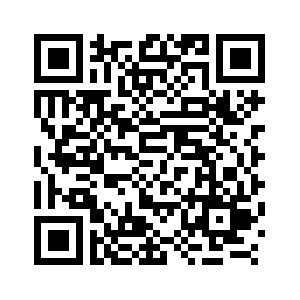BERLIN, Jan. 11 (Xinhua) -- The German right-wing Alternative for Germany (AfD) party is in the lead in a poll published on Thursday for the upcoming elections in three eastern German states in September.
In Saxony, the AfD, which has so far never been part of a state government in Germany, received 34 percent of the vote. Meanwhile, in Thuringia it won 36 percent, and in Brandenburg 32 percent, according to the RTL/ntv trend barometer conducted by the Forsa Institute.
While the lead over the first runner-up in Saxony, the Christian Democratic Union (CDU), is still comparatively small at 4 percentage points, it is clear in the other two states. In Thuringia, the party was 16 points ahead of the CDU, and in Brandenburg 10 points ahead of Chancellor Olaf Scholz's Social Democratic Party (SPD).
Alongside its demand to limit migration, the AfD favors rapprochement with Russia. The party advocates peace negotiations, instead of Western arms deliveries to Ukraine and economic sanctions against Russia.
The Ukraine crisis will "not be ended by force of arms," said AfD leader Alice Weidel last year. Instead of further escalation towards a "third world war", the international community should "work more intensively for peace negotiations," she said.
Although all other parties in Germany are isolating the AfD due to accusations of right-wing extremism, it has already won its first elections at the local level in 2023. In addition, in the last state elections in Bavaria and Hesse, the party achieved record results of 14.6 and 18.4 percent, respectively.
"The AfD is no longer an eastern phenomenon, but an all-German party," Weidel said in October 2023. "Further exclusion and discrimination would be an undemocratic disregard for voters."
The majority of Germans (53 percent) expects the right-wing party to take the next step this year and provide the minister president in at least one of the three eastern German states after the elections in September, according to a survey conducted by YouGov last week.
However, due to the lack of coalition partners, forming a government is expected to be difficult or even impossible for the party. Even the CDU, whose political program has the most similarities with that of AfD, is ruling out cooperation, although it has already pushed through legislation with AfD's help.
On the other hand, the poll results indicate that it will also be difficult for the other parties to form a government. Parties with opposing views, such as the CDU and the Left Party, would have to join forces in larger alliances, and even then would struggle to achieve a parliamentary majority.
The CDU, which is on the upswing at national level, wants to take on the battle for pole position in the state elections. Party leader Friedrich Merz said last month he was confident "that we will succeed in becoming the strongest parliamentary group in all three federal states again." (1 euro = 1.10 U.S. dollar) ■



